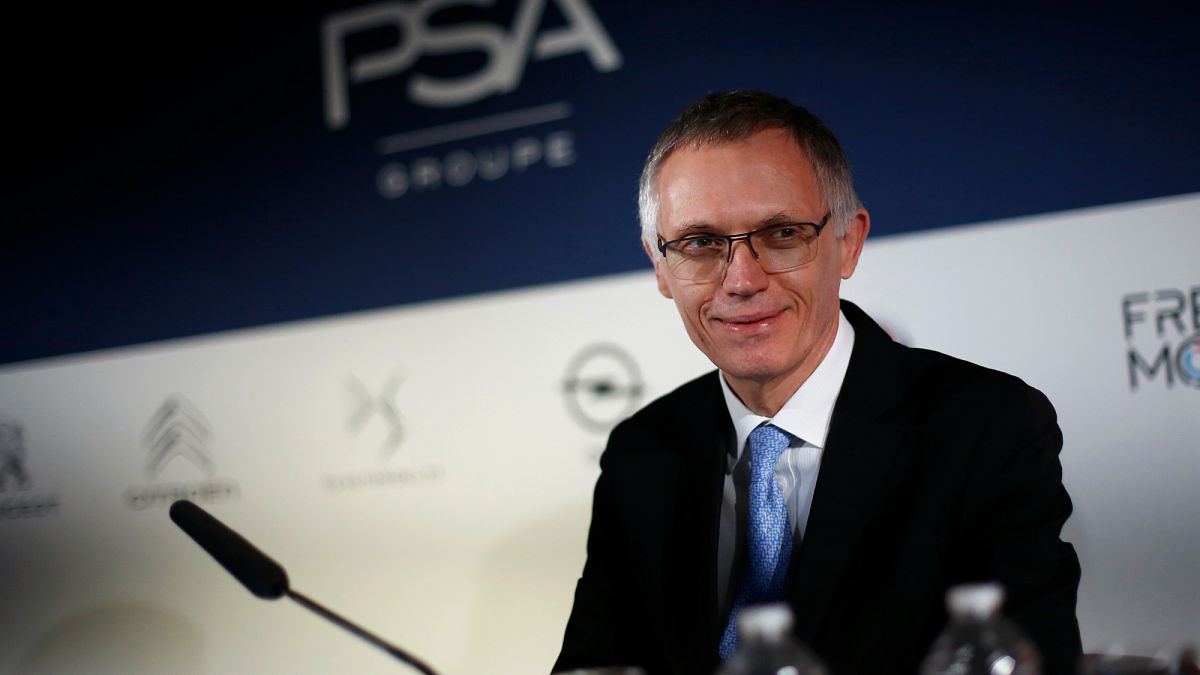Stellantis shareholders approved a €23.1 million final pay package for former CEO Carlos Tavares on Tuesday.
Around 67% of investors voted in favour of the remuneration during the carmaker’s annual general meeting in Amsterdam.
The payout includes a €2mn base salary, a €500,000 “post retirement benefit expense”, and over €20mn as part of a long-term incentive package — designed to reward staff for milestones.
Tavares’ compensation isn’t without its critics. Ahead of the AGM, Allianz Global Investors and Proxinvest had encouraged shareholders to reject the proposal, notably in light of Stellantis’ disappointing performance last year.
“The pay package of €23.1mn for the former CEO proposed under the remuneration report appears overly generous, particularly given the lackluster operating performance and the circumstances surrounding the CEO’s forced resignation,” Allianz Global Investors said in a statement last week.
“The impact of the profit warning on the variable pay is only reflected in the bonus (with a zero payout) but not in the other components of the variable pay which would still grant him a payout of €20.5mn.”
Tavares, who was scheduled to stay in his role until early 2026, resigned in December after a severe decline in Stellantis’ US and Europe sales — hitting profits.
The carmaker issued a profit warning in late 2024, forecasting that its adjusted operating margin would be between 5.5% and 7% for the year, compared to the previous expectation of 10%. It added that its free cash flow would be in the red, between €5bn to €10bn, down from a positive forecast.
A sudden departure
Tavares had notably clashed with Stellantis’ board over his electrification strategy. The CEO was keen to push for 100% battery electric vehicle (BEV) sales in Europe by 2030, while the board wanted to slow the pace of the transformation.
After the CEO’s departure, Stellantis said that its search to find a new leader would be wrapped up before the first half of 2025, naming Chairman John Elkann as the interim head. Reuters said on Tuesday that Stellantis had now whittled its shortlist down to five candidates, citing two people familiar with the matter.
The vote this week isn’t the first time Tavares’ pay has been scrutinised. In 2022, 52% of Stellantis’ voting shareholders rejected a compensation package for the CEO, when his pay came to €19.2mn in 2021, minus long-term incentives.
While Stellantis was in dire straits last year, politicians — including Italy’s deputy Prime Minister Matteo Salvini — also criticised Tavares for pocketing such a large remuneration.
Tavares had led Stellantis since its creation in 2021, birthed from a merger of Fiat Chrysler and PSA Group.
Trump’s auto tariffs
Investors will be seeking clarity as US President Donald Trump flip-flops on auto tariffs. On 3 April, Trump imposed a 25% duty on car imports into the US, while a tariff on auto parts is set to kick in on 3 May.
This week, the president nonetheless suggested he may be open to exemptions, claiming they could give carmakers time to shift their manufacturing to the US.
“I’m looking at something to help some of the car companies with it,” Trump told reporters in the Oval Office. “And they need a little bit of time because they’re going to make them here, but they need a little bit of time.”
Analysts note that it will be a hard sell for Trump to bring car manufacturers to the US, especially due to the volatile nature of his trade policies. Given that shifting production requires long timelines, many firms will be unwilling to invest in such a move while the tariff situation is unclear.
“With the current path of painful tariffs and overly rigid regulations, the American and European car industries are being put at risk,” Chairman John Elkann said during the automakers’ shareholders’ meeting.
He noted that he was, however, “encouraged” by the prospect of a tariff reprieve for carmakers.

